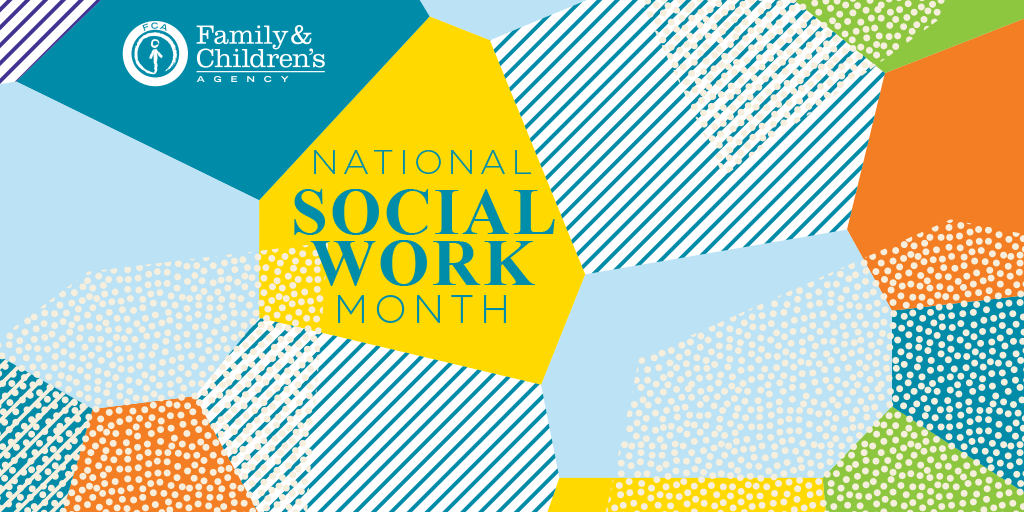
March is National Social Work Month and today’s guest blogger is Xanic Wood, Licensed Clinical Social Worker and Clinician in FCA’s Outpatient Behavioral Health program. Xanic is currently working toward becoming a Certified Clinical Trauma Professional.
I love what I do, and I tell that to anyone who asks. As a clinical social worker, I have focused my work around children, adolescents, and families who have experienced one, or many, forms of trauma. I can’t see myself being anything other than a clinical social worker, but how did I get to this place
I always had a passion for working with children and helping others. As a child I would help my elderly neighbors with various tasks or watch the younger children while their parents ran errands. Eventually, over time, this blossomed into becoming a social worker. For a long while I thought I would be a teacher, but after my own experiences in therapy I decided that this was what I really wanted to do.
My first experience with therapy at 12 years old wasn’t a great fit. I found the therapist to be cold and unwelcoming and after the first session I told my mother I would never see a “shrink” again. However, a year later I tried again and this time I found an incredible child and adolescent therapist. This therapist gave me a safe place where I was not only heard but seen. She allowed me to process my experiences, thoughts, and feelings, and taught me skills to navigate my life. I knew then that this was exactly what I wanted to do for other children. Today, these are the foundations of my work with clients.
Through my education and work, I’ve learned that trauma is subjective and developmentally bound. This means that even the exact same situation can be experienced and processed differently by people depending on many characteristics including age, already established stress tolerance skills, personality, and social supports. But what we also know is that once an experience is interpreted as traumatic, that person has a neurobiological response. Without processing and working through these experiences, they can impact social interactions, cognitive development, emotional stability, behavioral regulation, and even physical health for many years.
Children and adolescents are incredible human beings who are often at the mercy of the adults around them. I have worked with children who have faced parental physical violence and then learned to trust adults in their lives. I was able to help youth who were neglected and denied the opportunity to play learn to engage in that essential childhood activity and develop the foundational skills it fosters. I have seen kids who experienced sexual abuse create and maintain healthy relationships. And I have witnessed children who were verbally abused learn to express themselves effectively and with kindness.
Seeing these changes and helping them develop is truly one of the most rewarding aspects of my life. I’m proud to be a social worker at FCA, where these transformations occur because of the staff’s dedication and collaboration with clients who work hard to make lasting change in their lives.